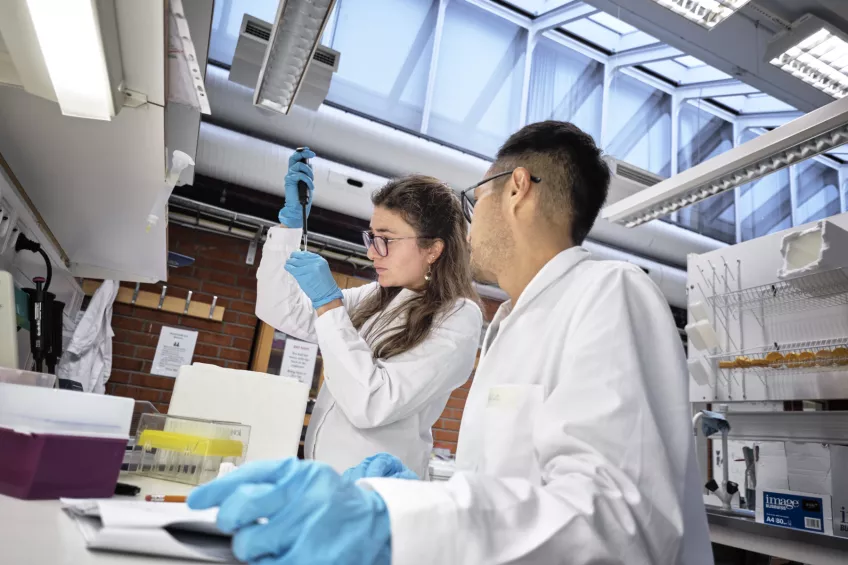Microbiology BIOR18
15 credits
Course description
Why study microbiology?
Although the study of microorganisms is an old and important discipline, it has gone through a rapid development in recent years that has transformed it into a highly dynamic field that influences most aspects of modern biology. New technology allows us to study important and fascinating questions regarding the microbial life and its importance on this planet. Microbiology is also crucial for some of the major challenges and problems that we are facing today, including the spread of antibiotic resistance, solving the energy crisis, dealing with pollution, sustainable food production, and even climate change. In other words, knowledge in microbiology is extremely relevant for everyone and necessary for biologists.
Who should take the course?
Our aim is to give broad and thorough insight into modern microbiology that will be valuable and useful for all biology students. At the same time, this course is the first step in a series of courses for those who want to focus their studies on microbiology or related topics. The course is a required part of the Masters programme in microbiology.
Course content
Training in microbiological practice and laboratory skills is an essential and important part of the course. This includes both regular practicals and a project that runs throughout the course. The project is independently planned and carried out by groups of 2-3 students and gives training in many aspects of microbiology, as well as in general laboratory practice and project planning.
The theoretical parts are treated both in lectures and in problem-solving seminars. The first part of the course deals with physiology and diversity of microbes. It gives a modern view of the microbial world and its phylogeny. The structure and function of the prokaryotic cell is discussed in detail. Growth of microorganisms is analysed from several aspects. You will be guided through the remarkable metabolic diversity of microbes, which gives essential knowledge for understanding industrial and environmental applications, as well as the roles of microbes in the global cycles of the elements.
The first part of the course prepares you for the following weeks. Here you are introduced to important current topics in microbiology. One week gives an introduction to medical microbiology, including bacterial toxins, antibiotics and resistance. Another week is dedicated to modern microbial ecology, during which you apply the fundamental knowledge acquired during the course so far to the study of microbes and their activities in the natural habitats. Finally, you learn about several industrial, agricultural, and biotechnological applications of microbiology, and make study visits to see microbiology in action at real working places for microbiologists.
Autumn period 1
Full-time, on campus, in English
Application
Course literature 2024
To be announced.
Schedule
The latest schedule for the course Microbiology in the schedule software TimeEdit.
Evaluations
You find the latest evaluation on our web page with course evaluations.
Course coordinator
Questions?
Therese Reber, study advisor, molecular biology
Telephone: +46 46 222 73 16
Email: molbiol_master [at] biol [dot] lu [dot] se


